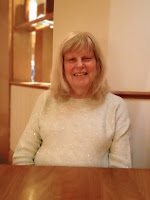Entitlement Proceedings - Jones v Irmac Roads Ltd
 |
| Jane Lambert |
This was an entitlement action under s.37 of the Patents Act 1977. The claimant, Mark Jones, sought a declaration that he was the sole proprietor of UK Patent No. 2 506 097 for an infra-red road asphalt heater. I discussed such actions in Disputes over Ownership of Inventions in IP Southeast on 5 Aug 2015. This case was unusual in that it took place in front of Judge Hacon and not a hearing officer on behalf of the Comptroller and the trial took place outside London.
The infra-red road asphalt heater was invented by Mr Jones. On 20 June 2012, a director of the defendant company applied for the patent naming himself and Mr Jones as the inventors without the knowledge of Mr Jones. The application was granted on 13 Sept 2017. The company claimed that it was entitled to the patent by virtue of a series of agreements made on 22 Dec 2011 whereby Mr Jones agreed orally to assign his rights in the invention to a company called Irmac Ltd. and that Irmac Ltd subsequently transferred that right to the defendant company.
Mr Jones claimed that the oral agreement did not convey his right to apply for the patent as that could only be done in writing though it may have created an equitable interest in favour of Irmac Ltd. but that equitable interest would have been assigned back to him upon his exercise of a patent option agreement. it was also conceded that Mr Jones was the sole inventor and that the director of Irmac Roads Ltd. had no part in the invention.
At para [58] of his judgment in Jones v Irmac Roads Ltd [2022] EWHC 495 (IPEC) (8 March 2022), Judge Hacon held that Mr Jones had both the legal and equitable rights to apply for a patent for his invention and that he was entitled to a declaration that he was the true proprietor under s.37.
The judge's starting point was s.7 of the Patents Act 1977:
(2) A patent for an invention may be granted—
(a) primarily to the inventor or joint inventors;
(b) in preference to the foregoing, to any person or persons who, by virtue of any enactment or rule of law, or any foreign law or treaty or international convention, or by virtue of an enforceable term of any agreement entered into with the inventor before the making of the invention, was or were at the time of the making of the invention entitled to the whole of the property in it (other than equitable interests) in the United Kingdom;
(c) in any event, to the successor or successors in title of any person or persons mentioned in paragraph (a) or (b) above or any person so mentioned and the successor or successors in title of another person so mentioned;
and to no other person.
(3) In this Act 'inventor' in relation to an invention means the actual deviser of the invention and 'joint inventor' shall be construed accordingly."
"upon an invention being made, a person or persons who satisfy s.7 (2) (b), or if there are none the inventor or inventors under s.7(2)(a), acquire the right to file an application for a patent. That right is exclusive to them or, where it arises, exclusive to their successor or successors in title. Succeeding in title is akin to acquiring an inchoate property in the invention, the property being the right to apply for a patent."


Comments